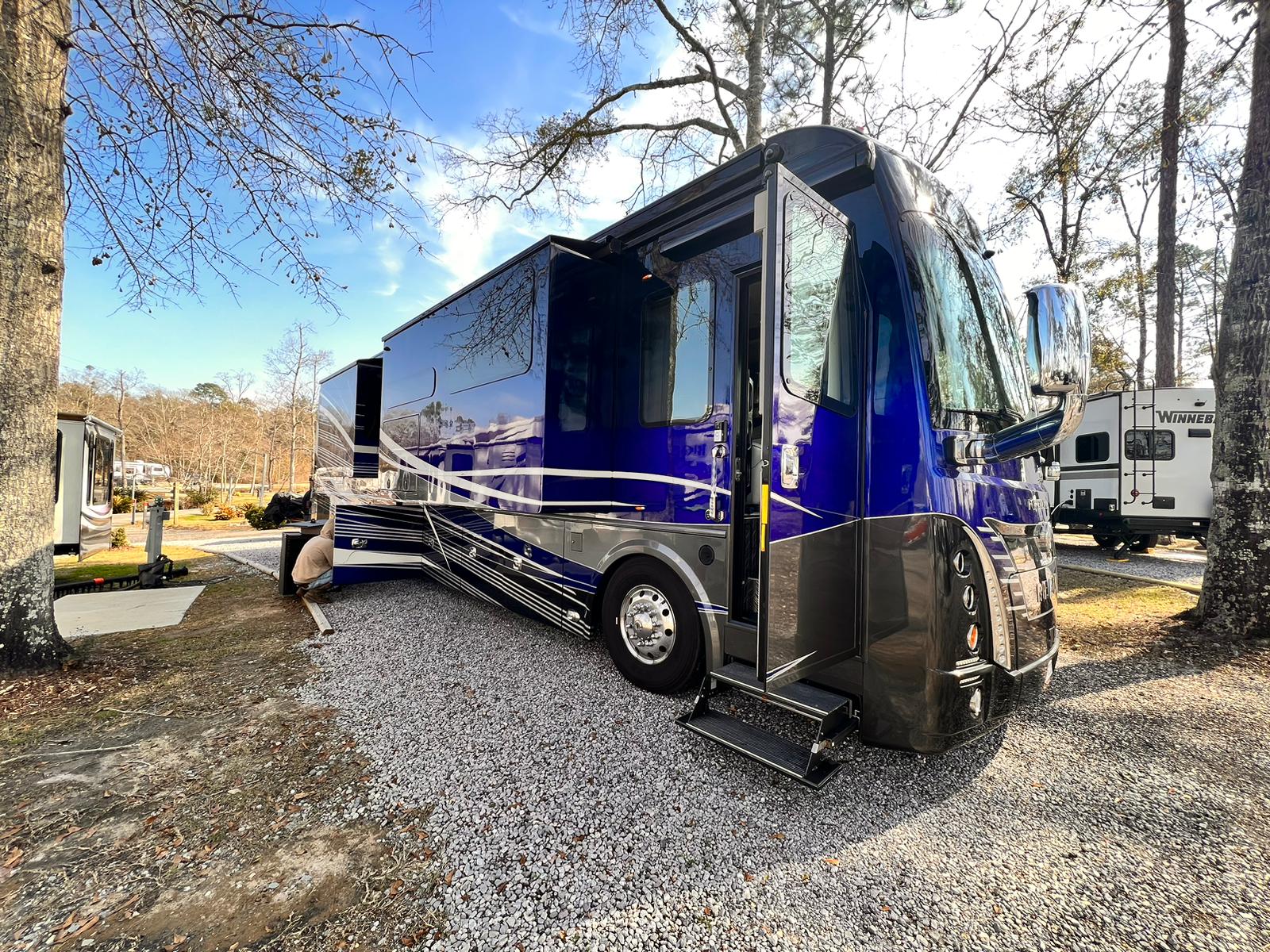RV camping is a wonderful way to experience the great outdoors while enjoying the comforts of home. Whether you’re a seasoned RVer or planning your first adventure, this comprehensive guide will provide you with valuable insights and tips for a memorable RV camping experience. From choosing the perfect campground to essential gear and tips for a smooth trip, we’ve got you covered.
1. Selecting the Ideal Campground:
Researching and selecting the right campground sets the foundation for a fantastic RV camping experience. Consider factors such as location, amenities, and recreational activities available. National and state parks, private campgrounds, and RV resorts all offer unique experiences, so choose one that aligns with your preferences and interests.
2. Planning and Reservations:
Make reservations in advance, especially during peak seasons, to secure your preferred campsite. Check campground policies, including pet regulations, length of stay, and any specific rules or restrictions. Create a detailed itinerary, including driving routes, stopovers, and estimated arrival times, to streamline your trip planning process.
3. Essential RV Camping Gear:
Equip your RV with essential gear to enhance your camping experience. This includes leveling blocks, chocks, fresh water hoses, sewer hoses, electrical adapters, and surge protectors. Pack a comprehensive toolkit, first aid kit, camping chairs, and outdoor cooking equipment. Don’t forget camping essentials such as lanterns, insect repellent, and camping gear specific to your activities, such as hiking or fishing.
4. Setting Up Camp:
When you arrive at your chosen campground, take your time to set up camp properly. Level your RV using leveling blocks, secure it with chocks, and connect to utilities if available. Familiarize yourself with the campground’s facilities, including the location of restrooms, showers, and dump stations. Make sure to follow campground rules and be respectful of your neighbors.
5. Enjoying Outdoor Activities:
RV camping offers ample opportunities for outdoor activities and exploration. Research and plan activities such as hiking, biking, fishing, kayaking, or wildlife spotting in and around the campground. Take advantage of organized activities or guided tours if offered. Remember to pack appropriate gear and clothing for each activity to ensure safety and comfort.
6. Campfire Etiquette and Safety:
Campfires are a quintessential part of the camping experience. Before starting a fire, check local regulations and fire restrictions. Follow proper campfire safety protocols, including keeping the fire contained, never leaving it unattended, and fully extinguishing it before leaving the site. Respect quiet hours and be considerate of fellow campers by keeping noise levels to a minimum.
7. Leave No Trace:
One of the core principles of RV camping is leaving no trace. Respect nature and the environment by practicing responsible camping. Clean up after yourself, dispose of trash properly, and avoid damaging natural resources. Leave your campsite as pristine as you found it to preserve the beauty of the outdoors for future campers.
Conclusion:
RV camping offers the perfect blend of adventure, comfort, and connection with nature. By following the tips outlined in this guide, you’ll be well-prepared to embark on an unforgettable RV camping journey. From selecting the right campground to packing essential gear and embracing outdoor activities, make the most of your RV camping experience and create lasting memories in the great outdoors. Happy camping!


Hi, this is a comment.
To get started with moderating, editing, and deleting comments, please visit the Comments screen in the dashboard.
Commenter avatars come from Gravatar.